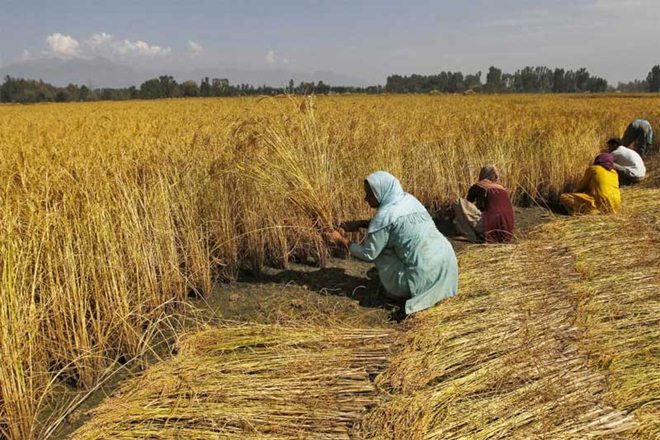The Reserve Bank of India (RBI) has repeatedly raised concerns over minimum support price (MSP) hike on the inflation front. In its last monetary policy report, RBI said, “If the monsoon is deficient and the budget proposals on MSPs lead to higher food prices, headline inflation could rise above the baseline by around 80 bps.” However, the hike may not have an immediate impact inflation to the expected extent as the effect would be staggered over a few months, a rating agency said.
“The forecast for normal monsoons this year, the 3rd consecutive year, augurs well for overall agricultural output and thereby food prices. Further, the commodities whose MSPs have been announced have a total weight of less than 4% in the WPI and 7% in CPI. As such, the impact on inflation would be limited,” CARE Rating said.
The proposal to hike the MSP for Kharif crops was approved by the Union Cabinet chaired by Prime Minister Narendra Modi on Wednesday. The government increased the gross margins for major crops to 50 percent, raising MSPs for kharif crops by between 4 percent and 52 percent.
NITI Aayog Vice Chairman said that he did not think there should be any concerns regarding price rise and fiscal slippage. Speaking to ET Now, Rajiv Kumar said that one must not look at negatives of the decision.
Impact on government’s fiscal position
The likely impact of the MSP hike on government’s fiscal position depends on the procurements undertaken this year. “Given that the government has increased it procurements and has also included pulses and oilseeds in 2017-18, the same is likely to be carried forward this year too. As such, in case of stable procurement the government’s food subsidy bill is slated to increase by 7.5% or around Rs.12,800 crs from the budgeted Rs. 1,69,323 crs for 2018-19. In case the procurements are to increase by 5%, the subsidy bill would increase by nearly Rs.13,500 crs,” said CARE Rating.

